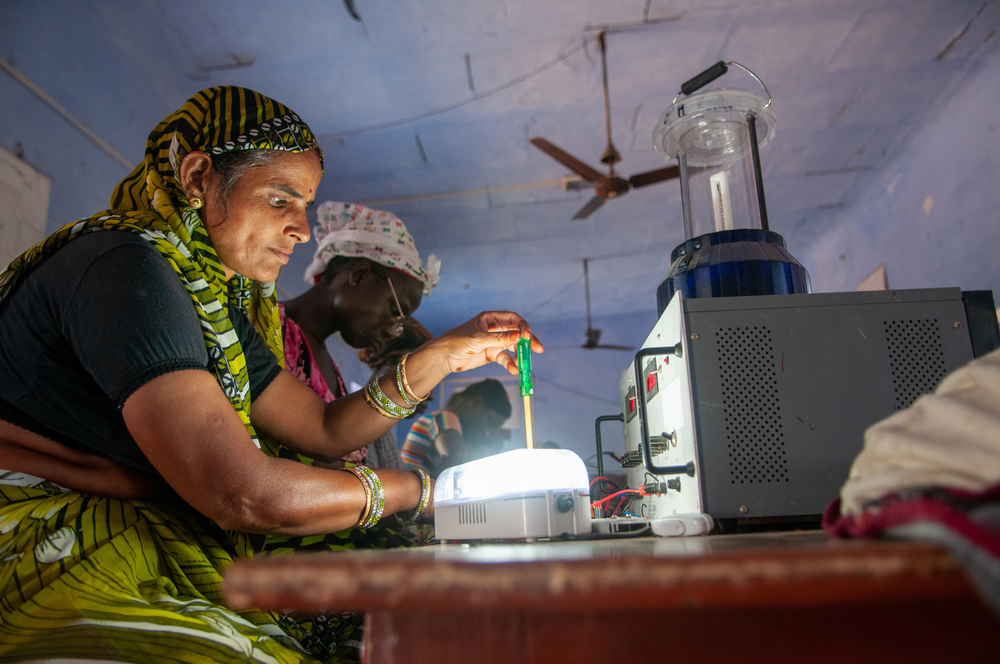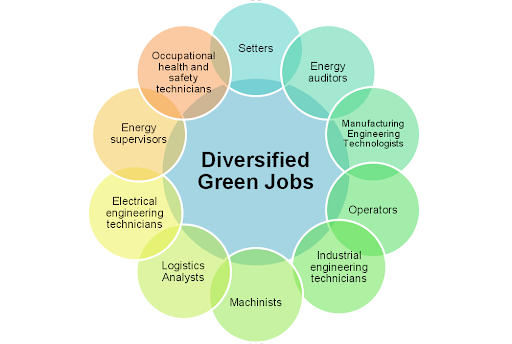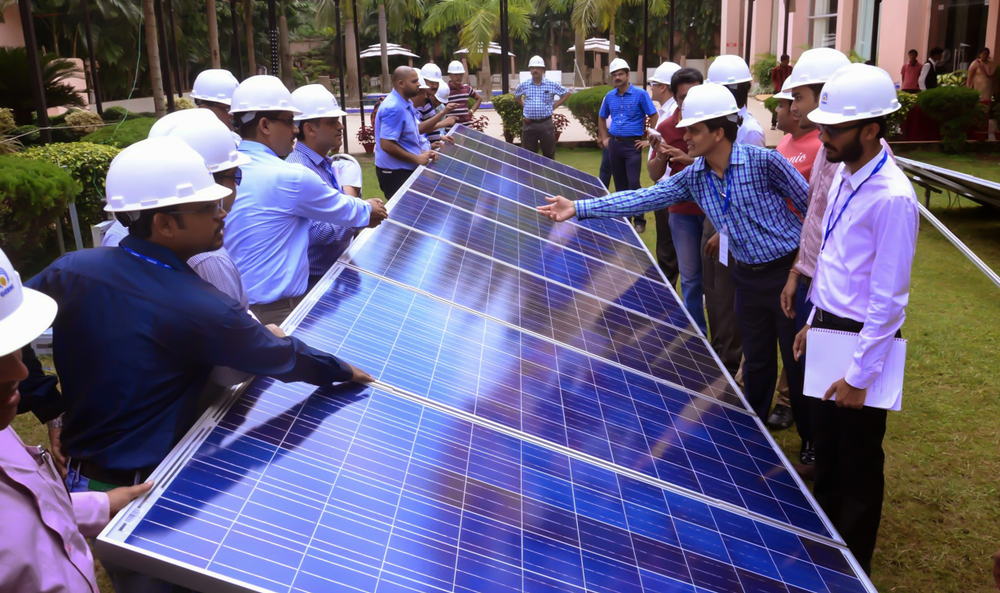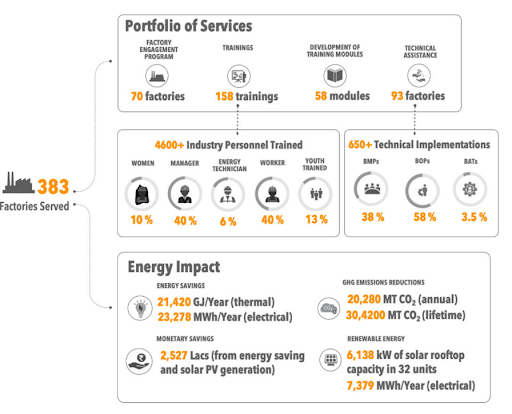Co-Authored by:

Bhavya Aggarwal

While ordering dinner last night, it was exciting to see that new-age companies like Zomato are exploring carbon conscious delivery options in Mumbai and Bangalore, where the food would be delivered on bicycles with no carbon footprint. While this handoff can seem innocuous to some, as a climate equity advocate I was excited by what I saw. Zomato is among a growing number of progressive businesses that are taking on the mission to switch to 100% Electric Vehicles (EVs) by 2030. In Zomato’s case, they’re slowly making the switch from motorbikes to electric bikes and bicycles, for food deliveries to reduce their carbon footprint.
Why Your Takeout Order Matters
This led to me to think thinking about the nature of such environment-friendly or ‘green’ jobs and how ubiquitous they actually are in society. Usually, our mind identifies green jobs as rather complex jobs on all parts of primarily enveloping the spectrum of ‘Green Businesses’ in industries like renewable energy, green construction, energy storage, solid waste management, electric vehicles (EV) etc. The opulent ventures of several power distribution multinational corporations (MNCs) like Adani Green Energy Ltd (AGEL), TATA Power Renewables, and JSW Energy have expertise in solar & wind energy. This kind of power distribution often secures the, often securing the majority of the market traction on green jobs and thereby overshadowing the efforts of small enterprises and the potential green job market within SMEs.
What Defines A "Green Job"?
"‘Green jobs’ are defined as jobs that reduce the environmental impact of enterprises and economic sectors, ultimately to levels that are sustainable."
At the enterprise level green jobs can produce goods or provide services that reduce environmental impact, such as green buildings or clean technology adoption. However, these green outputs (products and services) are not always premised on environmentally friendly manufacturing processes and technologies. Therefore, an important section of green jobs lies in sustainable or clean manufacturing.

Before announcing net-zero commitments last year at COP26, India had already begun preparation towards a green transition by institutionalizing capacity buildings for green jobs through jobs, including legal regulations and skill mapping. The country is accelerating the expansion of green jobs in large industries like automotive, textile, brick manufacturing, power sector, and green buildings. It is gradually expanding its coverage to hard-to-abate sectors such as steel, thermal power plants, and manufacturing SMEs.
Manufacturing Is The Key To India's Net-Zero Future
“Enabling an ecosystem for the creation, growth, and sustenance of green job opportunities is vital to promote India’s economic growth with a climate positive approach.”
India’s manufacturing sector is a massive employment hub. With the capacity to reach USD 1 Trillion by the end of 2025 (IBEF, 2021) and the country already employs around 20% of its workforce in renewable and green businesses, either directly or indirectly. According to the Bureau of Energy Efficiency, the industrial sector has the highest energy-saving potential up to 60%, which can be realized by 2030. This makes the Indian manufacturing sector an ideal platform for unlocking and developing the green jobs ecosystem by implementing energy-efficient solutions. Enabling an ecosystem for the creation, growth, and sustenance of green job opportunities is vital to promote India’s economic growth with a climate positive approach. Promoting diversified green jobs, beyond the conventional energy and operations sector— for example within compliance, quality assurance, automation, and control example— can help successfully capitalize on these possibilities.

“Every Job Can Be A Green Job”
In the realm of mitigation and adaptation we often hear people stress that “every job can potentially become green”, thus intensifying the transition to green economies which might be very different from the present ones. The reality is that the sustenance of green jobs really depends on the active participation of all social partners (i.e., employer, employee, policymakers or owners, etc.) to identify limitations such as skill gaps, the implementation of training facilities, and the translation of higher skills into higher pay. With the absence of predefined skillsets requirements for green jobs, skill development policies for green transition routinely adopt a short-term and serrated approach towards tackling the skill demands. Greater awareness of climate impacts and their inclusion in skill policy discussions is required to ensure that skill needs are addressed and apprenticeships are implemented to create and confront the green labor market demands.
Broadening the Talent Pool
“The skilling aspect in the manufacturing sector in India is rather weak and urgently demands linkages between industries and training institutes to incorporate generic solutions towards manpower & skilling.”

Between 2017 and 2030, 18.8 million people will require vocational education. 7.5 million will come coming from the existing workforce while 11.3 million will come from a completely new pool. India has also established one of the world’s largest skills mapping, training, and support systems in the world to train 150 million people for newly-created green jobs within sectors ranging from low-carbon transportation fuel, to e-mobility, to large-scale solar power production and a coal phase-out plan. Much of this work is done through the Skill Council for Green Jobs (SCGJ), a public-private partnership with a newly established statutory body dedicated to these efforts.
Dr. Praveen Saxena, CEO, Skill Council for Green Jobs, outlines the importance of driving green job creation, saying, “The skilling aspect in the manufacturing sector in India is rather weak and urgently demands linkages between industries and training institutes to incorporate generic solutions towards manpower & skilling.” Dr. Saxena accentuates the need of permanent institutes/skilling centers where experts, technicians, workforce, industries, and academicians come together to provide “quality green skills”.
Our Holistic, People-First Approach
The Institute for Sustainable Communities (ISC) understands that a holistic approach to both green jobs upskilling and new job creation is needed. For example, we are directly tackling the green jobs problem through our Sustainable Manufacturing Livelihoods Program (SMLP), supported by ClimateWorks. The program provides factories in India with the green increased talent pool they require to expand their sustainable manufacturing practices. In the process, we’re also increasing their competitiveness in regional and global supply chains as well as equipping the country’s youth with marketable skills in the green jobs market and increased livelihood opportunities.
Several more of ISC’s initiatives like Environment, Health, and Safety Center (EHS+) work with the objective of providing high-quality, globally-vetted skills and technical expertise in the manufacturing sector. We have been able to build an inclusive, locally skilled ecosystem. Our approach of comprehensively mapping the skilling gaps, designing capacity building modules, training existing SME workers, and delivering technical modules to fresh graduates allows us to fully support the greening of industrial clusters.
The "ACE" In The Hole
In 2022, ISC is taking another step further with its new “Accelerating Clean and Equitable Manufacturing” (ACE) program. ACE aims to transform the green-jobs movement towards more holistic, equitable green job ecosystems. ACE will help move the needle beyond the current focus of demand and supply interventions to fully incorporate elements of diversity and inclusion.

So, Can Every Job REALLY Become A "Green Job"?
Like we said before, the notion that “every job can become green” is routinely exaggerated in conversations around net-zero. However, with fast-approaching climate changes and their subsequent effects on policy and structural adjustments in the global economy, the need for the transition of green jobs to just “jobs” is of prime importance. As the world progresses towards a sustainable ecosystem, demand lies in blurring the line between jobs and green jobs.
The private sector has the potential to play a huge role in establishing a strong foundation for green jobs in India, especially with the booming start-up culture in the country. Zomato’s carbon-conscious deliveries on bicycles for short distances, are providing employment opportunities to resource-poor sections of the society and also avoiding transportation carbon emissions. For green jobs to thrive there needs to be an increased appreciation for green and sustainable practices, a specific regulatory framework to promote green businesses, and a competitive ecosystem that creates green jobs. Green jobs are not just a set of positions and skills but rather a whole new employment theme that needs exploration in order for the economic growth and the sustainable development of a country to go hand-in-hand. This holds especially true for developing nations like India. There are individualistic efforts from different agents like governmental agencies, policymakers, employers, and employees, but the question of its comprehensive incorporation amongst various levels of society still needs to be addressed towards the creation of a Green Economy. So the next time you order takeout for dinner, consider whether that company is pulling its weight to push India to a more sustainable future.

